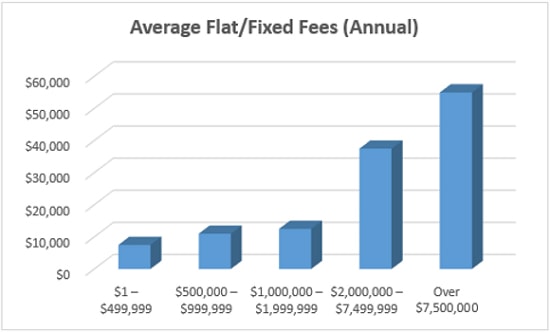
Financial software developers need to be able to work with big data. These developers must be proficient in both mathematical modeling as well as distributed systems architecture. They must have excellent problem solving skills. These include information on the career outlook and salary. Read on to find out what it takes for financial software developers to succeed.
Job outlook
An understanding of data structures, coding languages, and coding languages is required for a job as a financial program developer. They should also be comfortable working around large amounts of data. Cloud computing services like AWS and Azure are increasingly used by financial institutions. Data engineers will be more in demand as the number of cloud-based service options increases. Many financial data engineers are responsible for data quality and efficiency. They must have skills in data analysis, visualization, and optimization.
Software developers in financial software may work in many industries. The types of software they develop will depend on the type of financial institution and its needs. They could work with small banks or large financial institutions. Credit card companies may also be interested in their services. They are constantly working on new financial software.

Salary
The salary of financial software developers varies widely, depending on the level of education and experience required. Bonuses may be offered for reaching certain milestones. This is because financial institutions will continue to invest in new technologies, which will increase the demand for software engineers. Furthermore, many companies are seeking ways to improve customer service through automation.
The salary of financial software developers ranges from $56,730 to $116,670 per annum. According to ZipRecruiter, the Chicago area is among the most competitive in the country, with Financial Software Developers earning an average of $121,275 per year in the city. This is approximately $3,375 higher than the national average.
Skills required
A variety of skills are required for financial software developers. First, they must be able to code. This skill allows them create programs that can handle large amounts data. They will also need to be conversant with mathematics and distributed system architecture. Data analysis is another skill required to develop applications for financial industries.
The second requirement is that they can communicate with clients to explain complex financial concepts. They must also be able listen to clients' feedback and improve their software.

Career path
A career as a computer programmer may interest you. This job requires you to know how to program in different languages. Financial software developers are skilled at creating accurate and efficient programs. They must be able and able to analyse large amounts data and perform complex calculations.
While many financial software developers work from an office, they also may work remotely. Typically, they work regular business hours, but they may have to work overtime if needed to meet deadlines and accommodate clients in different time zones. They should also be able speak with clients and team members.
FAQ
What is a consultant anyway?
A consultant is someone who provides services for other people. This is more than a job title. You help others achieve their goals. You do this by helping them understand their options and helping them make the right choices.
Consultants are experts at finding solutions to problems and challenges that arise when working on projects. They also provide advice and guidance on how to implement those solutions.
A consultant should be able to answer questions about anything related to business, technology, finance, law, management, leadership, strategy, operations, customer service, human resources, etc.
How do I become a successful consultant?
Finding a passion area is the first step. Then you have to build relationships. It is important to understand the needs of clients and their business. Finally, you have to deliver results for your clients.
While you don’t have to be the greatest at everything, you have to be better than everyone else. It is important to be passionate about what you do. It doesn't suffice to say, "I will be a consultant." It is important to believe in yourself and the work you do.
What should your consulting fees be?
It depends on what service you provide. If you are providing services for free, then there isn't any point in charging anything. If you're selling products or services however, prices should be determined based on their value.
If you are offering low-quality services, you don't have much to sell. So why would anyone pay any money for your services.
You may be able to ask for a higher price if you offer high-quality services. This is because people know the value that you provide. It is possible to offer discounts to clients who order multiple packages.
What skills are necessary for consulting?
Strong interpersonal and analytical skills are essential for consultants. This is crucial because you might not be able to understand what you are doing when you work on complex projects. You will need to learn how you manage people and solve problems quickly.
You also need to have excellent communication skills. Most clients expect to hear back within 24 hours. If they don't hear anything, it is likely that they aren't interested in you. It is vital to inform them and make sure that they are fully informed.
Is consulting a real job?
Consulting isn't just a career option for those who want to earn quick money. It's also a great place to gain valuable skills and build a foundation you can use in your future work.
There are many options for consulting. These include project management, business strategy, strategy, leadership, and training. You might find yourself working on projects ranging from small start-ups to large-scale international corporations.
Consulting provides you with the opportunity to develop and hone your skills, as well as gain experience within a range of industries. This could be learning to manage people, write proposals and manage budgets, analyze data and create presentations, or conduct market research.
Statistics
- According to statistics from the ONS, the UK has around 300,000 consultants, of which around 63,000 professionals work as management consultants. (consultancy.uk)
- "From there, I told them my rates were going up 25%, this is the new hourly rate, and every single one of them said 'done, fine.' (nerdwallet.com)
- 67% of consultants start their consulting businesses after quitting their jobs, while 33% start while they're still at their jobs. (consultingsuccess.com)
- Over 62% of consultants were dissatisfied with their former jobs before starting their consulting business. (consultingsuccess.com)
- So, if you help your clients increase their sales by 33%, then use a word like “revolution” instead of “increase.” (consultingsuccess.com)
External Links
How To
What does a typical consultant's day look like?
A typical day will vary depending on the type of work you are undertaking. You'll spend your time researching new ideas and meeting clients.
You will have many meetings where clients and you can discuss their issues. These meetings can take place over the phone, via email, online, or face to face.
You may also be asked to prepare proposals, which are documents outlining your ideas and plans for clients. These proposals will be presented to clients by you and a mentor.
After all the preparation, you'll need to start creating content. You could write articles, design websites, edit photos or conduct interviews.
Depending on the scope of the project, you may need to do some research in order to gather relevant statistics or figures. This could include finding out how many customers your company has and whether they purchase more than one product.
Once you have collected enough information, it's now time to present the findings to your clients. You can either present your findings in writing or orally.
After your initial consultation with clients, you need to keep in touch. You could phone them occasionally to check on things or send an email asking them to confirm that you have received their proposal.
This process takes time, but it's important to ensure that you stay focused and maintain good relationships with clients.